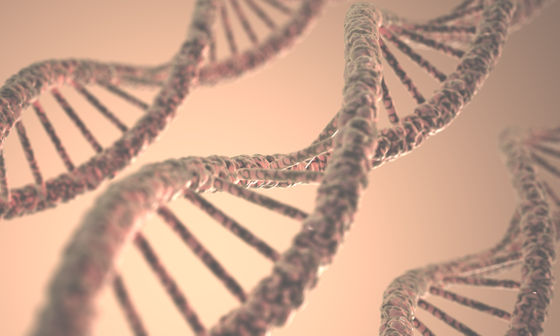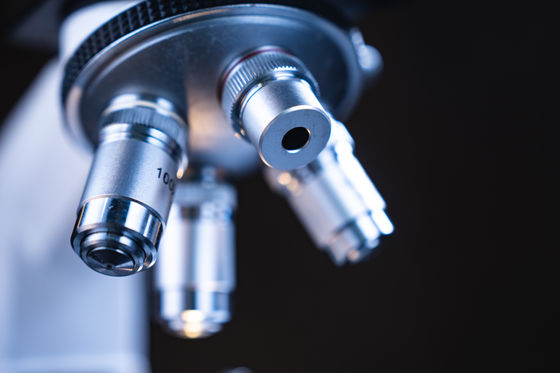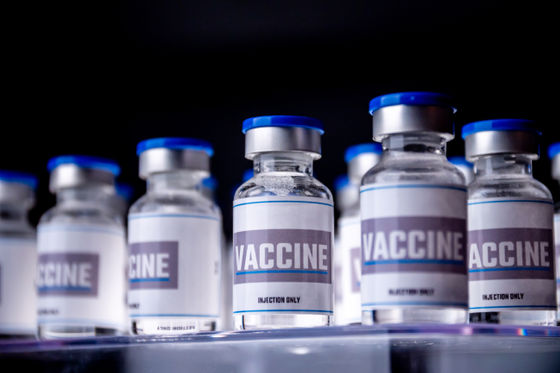Two people who contributed to the development of a new coronavirus vaccine win the Nobel Prize, and what is the difficult path that the unfortunate researchers took to save millions of lives?

On October 2, 2023, the Swedish Nobel Prize Committee announced biochemist Katalin Carrico, who has made a significant contribution to the development of mRNA vaccines for the novel coronavirus disease (COVID-19), and immunologist Drew. - Announced that Mr. Wiseman will be awarded the 2023 Nobel Prize in Physiology or Medicine.
Press release: The Nobel Prize in Physiology or Medicine 2023 - NobelPrize.org
Nobel Prize in medicine awarded for work on mRNA Covid vaccines by Katalin Kariko and Drew Weissman | CNN
https://edition.cnn.com/2023/10/02/europe/nobel-prize-medicine-mrna-covid-vaccines-2023-intl-scn/index.html
Nobel prize in medicine awarded to mRNA pioneers – here's how their discovery was integral to COVID vaccine development
https://theconversation.com/nobel-prize-in-medicine-awarded-to-mrna-pioneers-heres-how-their-discovery-was-integral-to-covid-vaccine-development-214763
Long Overlooked, Kati Kariko Helped Shield the World From the Coronavirus - The New York Times
https://www.nytimes.com/2021/04/08/health/coronavirus-mrna-kariko.html
In a press release, the Nobel Prize committee recognized Carrico and Weissmann's work as 'improving modern human health through groundbreaking discoveries that fundamentally changed our understanding of how mRNA interacts with the immune system.' The authors announced that they have been selected for the Nobel Prize in Physiology or Medicine.
mRNA, also called messenger RNA, is synthesized from DNA through a process called transcription, and plays the role of synthesizing proteins essential to the human body through a process called translation. Mr. Carrico and Mr. Weissman began their research with the idea that controlling this mRNA would enable treatment in a completely different way than previously available, but the road to achieving that goal was long and arduous.

Originally from Hungary, Kariko came to the United States in 1985 with her husband and then 2-year-old daughter, and conducted research on using mRNA for treatment at Temple University in Pennsylvania. However, at the time, mRNA research was in decline, and Mr. Carrico, an immigrant, was treated poorly by the scientific community and was forced out of the university. While printing a paper on a copy machine at the University of Pennsylvania, where he had transferred in 1989, he happened to meet Mr. Weissman, who had a deep knowledge of immunology, and they began collaborating on research.
At the time, there was a problem in mRNA research that ``administrating mRNA to mice would cause a harmful immune response, which would have a negative impact on health.'' However, in 2005, the two of them decided to base modification, that is, a part of mRNA. By replacing it, we found that we could regulate cell function while suppressing undesirable immune responses. However, this paper was rejected by all major scientific journals, and even when it was finally
Still, Mr. Carrico and Mr. Weissman did not give up on mRNA research, and in their research in 2008 and 2010, they discovered that protein synthesis using mRNA was dramatically increased, and based on these results, they sold mRNA to private companies. However, many companies and investors did not understand. However, in the end, two biotechnology companies, American Moderna and German BioNTech, became interested in mRNA, and the path to practical application was finally opened.

The turning point was the COVID-19 pandemic, which originated in China. Mr. Carrico's initial research was aimed at using mRNA to synthesize insulin and hormones, but if only a portion of the virus was synthesized in the body using mRNA, it would be possible to inactivate the virus itself. It is possible to acquire immunity more effectively than conventional vaccines that are administered.
Biotechnology companies that have been researching mRNA vaccines since the 2010s, before the pandemic, have developed an mRNA that synthesizes the virus's spike protein based on the genome of the new coronavirus (SARS-CoV-2) released by a Chinese research institute. We designed and developed an mRNA vaccine for COVID-19 by combining it with
The Nobel Prize Committee said of their achievements, ``MRNA vaccines have been administered more than 13 billion times, saved millions of lives, prevented millions more from developing severe COVID-19, and returned society to normal.'' 'Through their fundamental discoveries about the importance of base modifications in mRNA, they made a major contribution to groundbreaking developments in one of the greatest health crises of our time.'

When the vaccine became available, Carrico celebrated by eating an entire box of his favorite chocolate peanuts. Carrico, the 13th woman to win the Nobel Prize in Physiology or Medicine, told the journal Nature : ``I hope this award inspires women, immigrants and all young people to persevere and be resilient.'' 'I'll do it,' he said.
Related Posts:
in Science, Posted by log1l_ks







